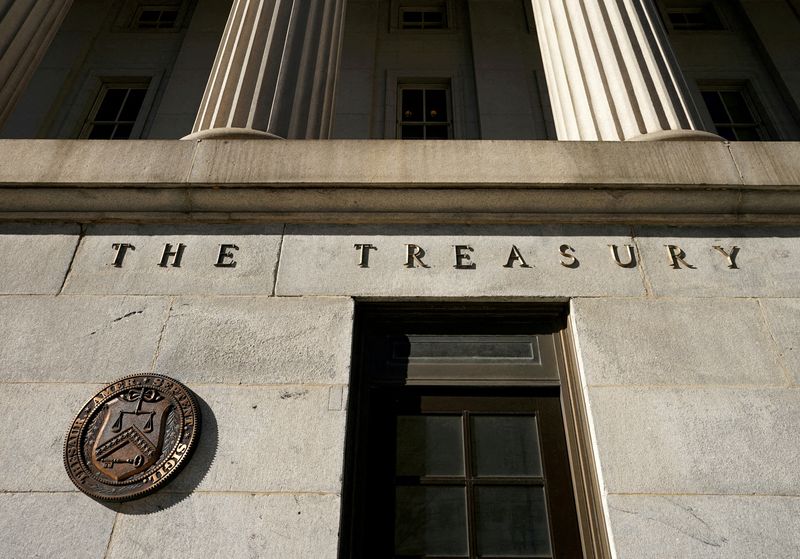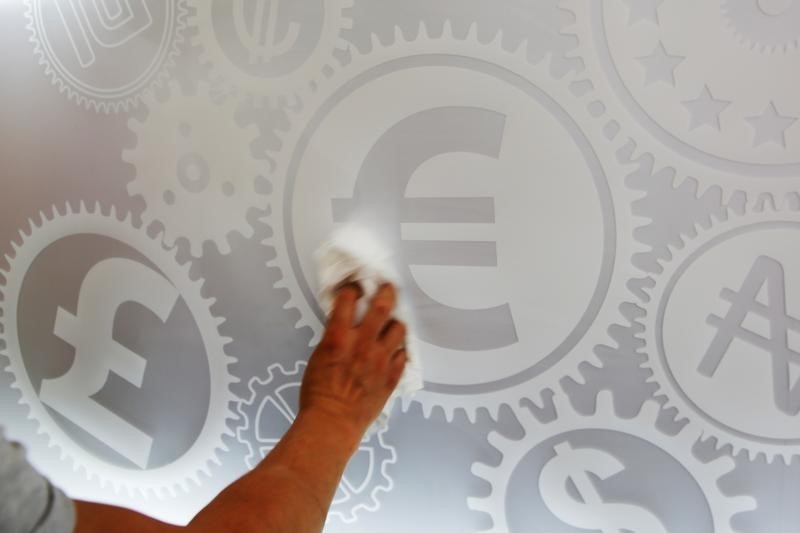By David Lawder
WASHINGTON (Reuters) – The U.S. Treasury Department said on Thursday that no major trading partner appears to have manipulated its currency last year, but added Japan to a foreign exchange “monitoring list” along with China, Vietnam, Taiwan, Malaysia, Singapore and Germany. that were on the previous list.
The Treasury Department’s semi-annual currency report found that none of the countries surveyed met all three criteria, prompting an “enhanced analysis” of their currency practices over the four quarters to December 2023.
Countries are automatically added to the list if they meet two of three criteria: a trade surplus with the US of at least $15 billion, a global account surplus of more than 3% of GDP and sustained one-way net foreign exchange purchases of at least $2 billion dollars. % of GDP over twelve months.
The Treasury Department said Japan, Taiwan, Vietnam and Germany all met the criteria for trade surpluses and an excessive current account surplus.
Singapore met the criteria for sustained foreign exchange intervention and a substantial current account surplus, and Malaysia only met the criteria for current account surpluses, but once on the list, it takes two currency reporting cycles to delist.
China was kept on the monitoring list because of its large trade surplus with the US and a lack of transparency around its currency policy.
“China’s inability to publicize foreign exchange interventions and the broader lack of transparency around key features of its exchange rate mechanism continue to make the country an outlier among major economies and warrant close scrutiny by the Ministry of Finance,” it said Ministry of Finance in the report.
The report also raises questions about China’s reporting of current account balance data, which showed the surplus fell from 2.5% in 2022 to 1.4% of GDP in 2023. The Finance Ministry said China’s balance of payments data, published by the State Administration of Foreign Exchange, on the country’s trade surplus appears to conflict with China’s own customs data and that of other trading partners.
A US Treasury official said the department was trying to understand such “anomalies.”
JAPAN’S INTERVENTIONS
The official said Japan’s recent currency interventions to support the value of the yen were not a factor in the decision to add the country to the currency monitoring list. The official cited Japan’s high 2023 trade surplus of $62.4 billion with the US and the global current account surplus of 3.5% of GDP, up from 1.8% in 2022.
But the Treasury report said that in April and May 2024 – outside the period covered by the report – Japan had intervened for the first time since October 2022 by buying yen and selling dollars to strengthen the yen’s value .
The Treasury said Japan was transparent in its foreign exchange transactions, but added: “The ministry’s expectation is that in large, freely traded foreign exchange markets, interventions should be reserved only in very exceptional circumstances, with appropriate prior consultation.”
Speaking to reporters on Thursday, Japan’s top currency diplomat Masato Kanda said he sees no problem with Japan’s inclusion on the US currency monitoring list, adding that the country was assessed based on mechanical criteria.
According to the report, most currency interventions in 2023 were aimed at selling dollars – actions that strengthen a currency’s value against the dollar. The dollar has strengthened over the past two years as the Fed has raised rates sharply to cool inflation.
The biggest concern in the Treasury report is about interventions to buy dollars and thus weaken other currencies.
“It is therefore no surprise that in the four quarters ended December 2023, no trading partner manipulated the exchange rate between its currency and the US dollar with the aim of preventing effective balance of payments adjustments or gaining an unfair competitive advantage. in international trade,” the Ministry of Finance said.
Vietnam’s current account surplus increased to 5.8% of GDP in 2023, while the goods and services market trade surplus with the US reached US$103 billion, meeting the monitoring list criteria.

Vietnam, which is seeking US recognition as a market economy, has “credibly conveyed” to the Treasury Department that it has made net purchases of foreign exchange worth 1.5% of GDP in 2023, below the threshold of 2% of the Ministry of Finance.
The Ministry of Finance said it “remains satisfied” with Vietnam’s progress in modernizing the transparency of its monetary policy and exchange rate management and will continue to work closely with the State Bank of Vietnam.


